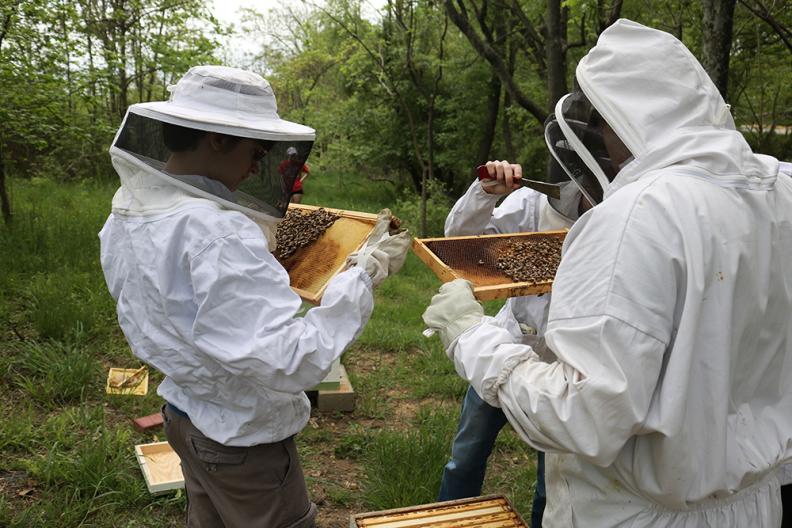
If you like to eat, bees are your friends. The crops they pollinate account for 30 percent of Americans’ diets, and have an economic value of more than $20 billion.
Yet the busy, buzzing insects are threatened by factors including pesticides and parasites. The science behind preserving pollinators is a major focus of the University of Maryland, where the Department of Entomology, the vanEngelsdrop Bee Lab and numerous staff, faculty and student members are all busy working on solutions, including building natural habitats on our campus and in the state of Maryland.
And don’t forget the student Beekeeping Club, a small but important component in the university’s commitment to sustainability.
Led by President Noah Zingler and Vice President Ian Howard, the club promotes beekeeping and bee conservation by spreading awareness and engaging the local community. Club members attend a variety of campus events where they talk to students about the importance of bees and how they can help preserve them.
The Beekeeping Club raises money by selling beeswax and honey that members collect from their seven hives located by Campus Creek near the Xfinity Center. It also hosts soap-making and DIY lip balm workshops open to all university community members.
“We specialize in taking in people who have never seen or been inside honey bee colonies before,” Howard says. “We introduce them to our hives, and ultimately show them the wonderful things that our bees can produce for us.”
Due to his passions for bees and educating others, Howard decided to revitalize the club by taking on the role of president in 2016. One of his first projects was a “wax rendering,” harvesting the wax from old beehives to use for products.
“The hives had fallen into serious disrepair,” Howard says. “Many of the colonies had moved on to other places on campus and we were left with big honeycombs.”
They had to start from scratch, melting down the remaining combs in order to create new wax, a sticky and grimy process to start creating the honey and lip balms.
Club members have varying academic backgrounds and interests ranging from engineering to theater. “We truly have a multitude of different people here,” Howard says. “Many of us aren’t even environmental science majors.”
The Beekeeping Club, Howard says, “teaches members how these small organisms can come together to make something absolutely amazing… and it’s a really good excuse to get outside on the weekends.”
This story was featured in the 2018 SustainableUMD Magazine.